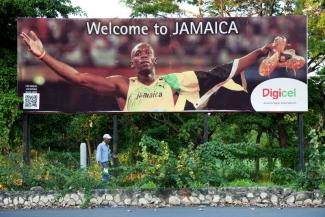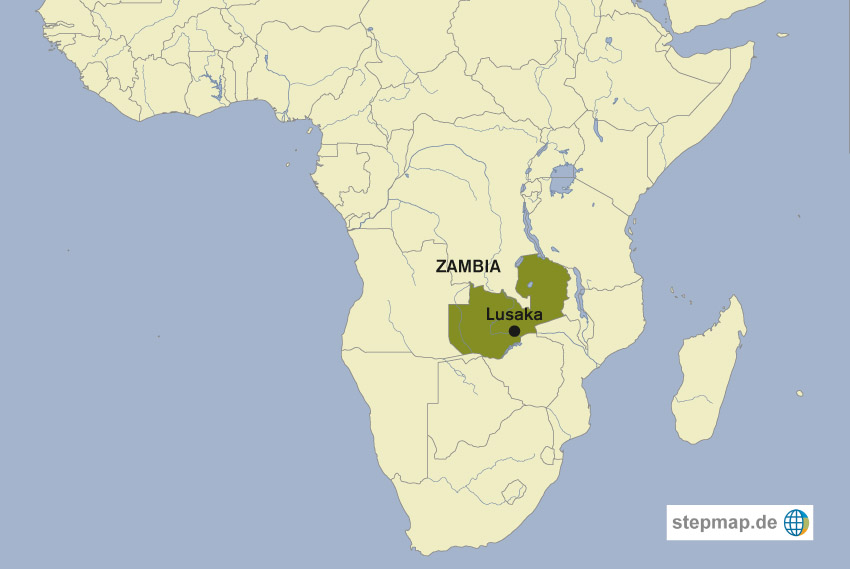Athletics
“A quitter never wins”

Why is Jamaica so prominent in athletics, especially running?
Fitness relates to food. The local Jamaican diet includes yellow yam, with strong carbohydrates which give you stamina. And the children are fit, they don’t take buses – often because they lack the money for public transport. In order to get to school, they have to go up and down the hills. In rural communities, kids don’t walk to school – they run. In the communities, everybody knows which kid is a good runner.
When do sports professionals spot young talents in Jamaica?
Mostly at an early age of up to 11 or 12 years, when they are in primary or prep school. All schools have sports competitions, including at the regional level. The competitions are tough, and the schools send their best runners to represent them. All people come and watch, and this is how talents are spotted.
What role do schools play?
Schools are very important, because it is through school-sports events that talented kids are detected, and they help promising runners get into proper competitions. But the geographical location matters too. Schools in poor rural areas cannot offer their pupils anything in support, not even track shoes. The schools need sponsors; some do fundraising. Sports coaches from richer areas grab the talented runners. For instance, some better-equipped schools promise parents to exempt them from school fees so the child changes to their school. The small rural schools lose the talents.
How do you identify a talented runner in a bunch of rural children?
Well, it’s not only about competition results. It is also important to see who can go a long way. I first look at their physical appearance – generally, sprinters have high butts, and long-distance runners have flat butts. Some are simply born athletes. When such talent is identified, you have to build on it. Often you know you have a talented runner, but there are no coaches available to carry and support him or her. Patience and willpower must be trained too. Kids from poor backgrounds and rural schools typically don’t receive enough support.
Do young athletes have to go abroad to train professionally?
Such options are usually linked to their school performance. If somebody is merely good at sports, that is not enough to get a scholarship. But if young runners are also good at an academic level, they can go abroad to train, mostly to the USA. Some of them will drop out after high school, because they don’t have the grades to go on to university and get support like a sports scholarship. Personally, as a track and field coach, I always point out to the kids in my team that they need to balance their sports and academic performance. I want the children to concentrate on their school achievements, first and foremost.
What do the young people hope for?
They want to be discovered and supported by a talent scout in order to become the next Usain Bolt! I tell them: You need hard work, self-discipline, time and commitment. A quitter never wins, and a winner never quits. But not everybody can become the next Usain Bolt. This Jamaican sprinter has won six Olympic gold medals, 11 world championships, and he holds the world records in 100 and 200 metres dash and – together together with his teammates – the 4 x 100 metres relay. He is also the best-paid sportsman in the history of track and field.
What becomes of young athletes who don’t make it, but who have given up school for a sports career?
Usually the boys join the police or military, and the girls get pregnant. But on the positive side, the females are often better at academics, so they have better chances of getting university scholarships. Shelly-Ann Fraser-Pryce, the world champion in 100 metre dash and Olympic winner, has a university degree and owns her own business, a hair parlour. In contrast, Usain Bolt has no university degree, but he can live off his sponsors.
Once young athletes are identified, what institutions support them?
There are two possibilities. Either the newcomers receive sponsorship from a private-sector company, or they are supported by the state-run Jamaica Athletics Administrative Association (JAAA), which is the body that governs the Jamaican track and fields sport. The JAAA is in charge of athletes at the national level. The problem is that they have no money to help young talents on their way up.
Are there sports academies in Jamaica?
Yes, but they don’t support young talents, they only give stipends to athletes who represent the country at an international level. Sports academies provide running gear, jerseys, spikes, food, accommodation and travel expenses for our athletes who compete internationally.
Are there good track and field training facilities in Jamaica?
The University of Technology in the capital Kingston has a good athletes’ club. And there is the Racers Track Club. Usain Bolt trained there. Kingston with its stadiums is best for athletes, because they can train on proper tracks. There is also Catherine Hall Stadium in Montego Bay, which is in the north of the island. Elsewhere, tracks tend to be bumpy and full of holes. We urgently need more sports facilities in the rural communities. We also need more community centres with playing fields and multi-purpose courts, like basketball and so on. That would help children to find out early in which field they excel. Today, some talented athletes are only discovered at university, which is a bit late for a good career.
Who makes the money when a Jamaican athlete wins international competitions?
The managers, mostly. At top levels, the athletes also live a good life, but only when he or she lives abroad. Regarding everybody else, particularly young people, it looks fairly bleak. Most athletes are underfunded. If they are not top athletes, the clubs won’t sponsor them. Sometimes people have to give up their jobs in order to have the time to attend international championships, but when they come back, they may not get their job back.
If Jamaicans had more opportunities to practice other disciplines like tennis, for instance, would they also excel?
Possibly. Running is comparatively inexpensive; you only need tracks and shoes. But hardly any Jamaican excels in other types of sports, because we lack the infrastructure. Even if you are an excellent swimmer in the sea, you’d need access to a proper swimming pool in order to train for competitions. For all disciplines which require special gear and infrastructure – for instance, tennis or cycling – you need corporate sponsors, but in Jamaica, most companies only support track and field sports.
What can be done internationally for Jamaican sports?
I think it would be extremely helpful to have exchange programmes between poor rural Jamaican high schools and overseas schools, like having joint workshops or exchange of students. This would boost motivation and expose the kids to new experiences. Generally speaking, promising young people have to be offered contracts with overseas clubs to get new experience and training. International sponsors could invest more in Jamaican sports, not only in track and field, but other disciplines as well.
Everton Leslie is a sports teacher and track and field coach in St.Andrew, Jamaica. He trains young track and field talents from eastern Jamaica.
evertles64@yahoo.ca
Link
Jamaica Athletics Administrative Association (JAAA):
http://www.trackandfieldjm.com/















